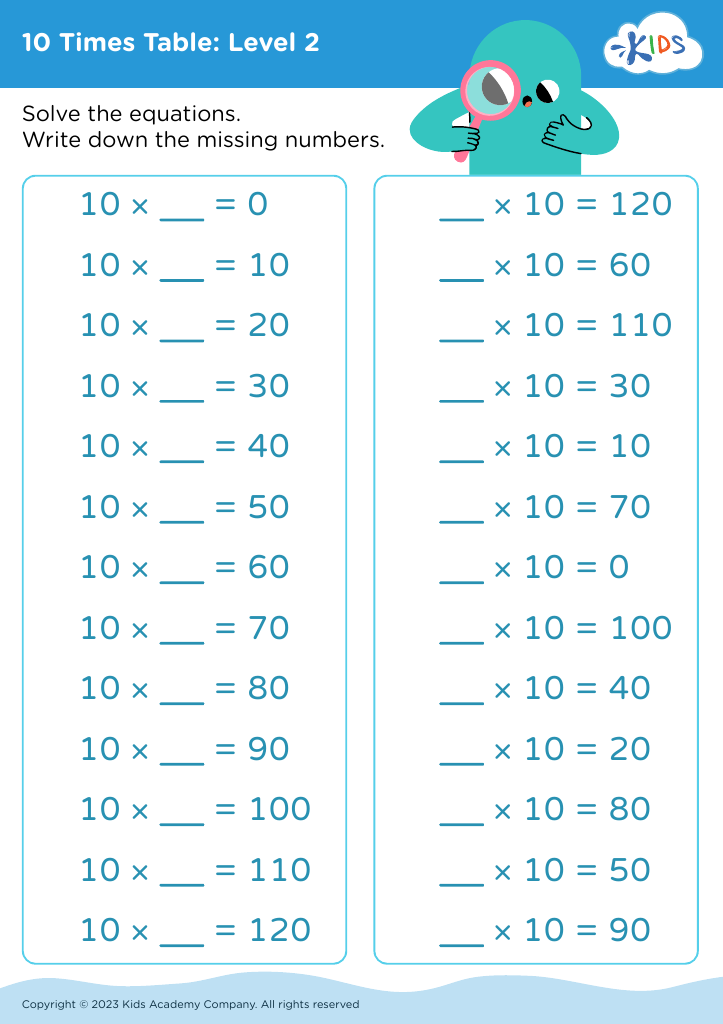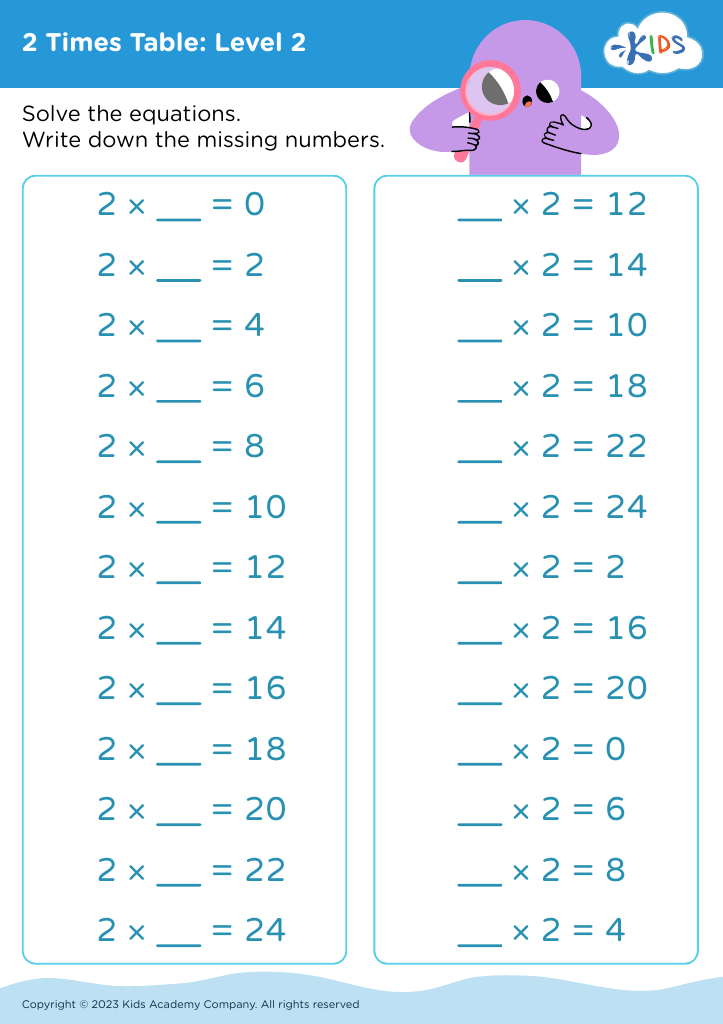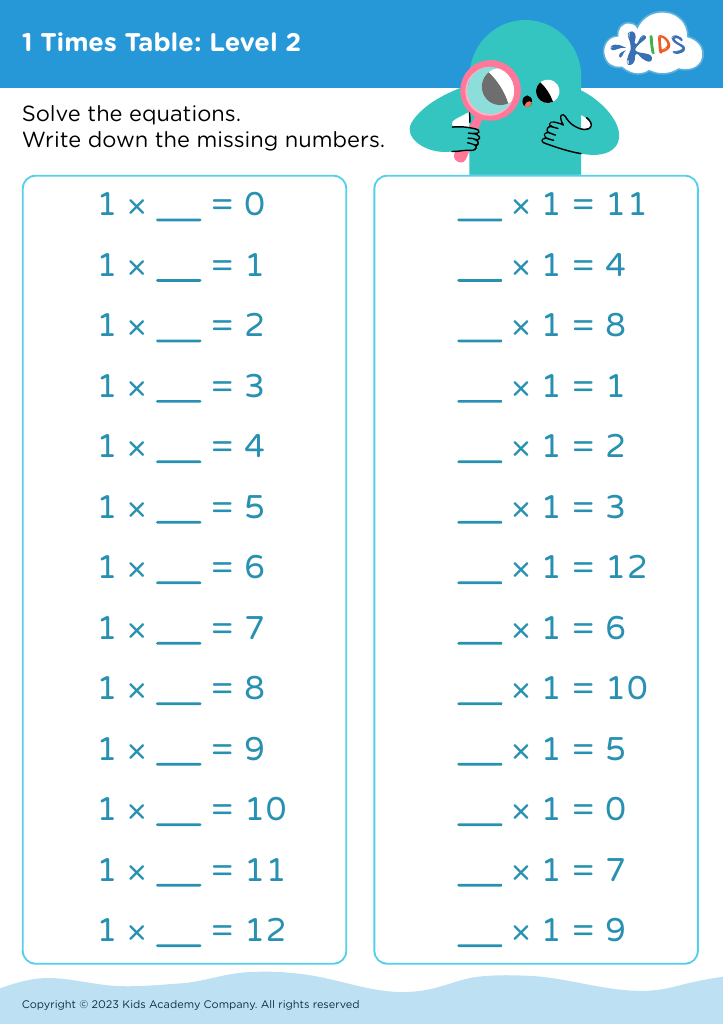Understanding times tables Normal Advanced Times Tables up to 12 Worksheets for Ages 7-9
3 filtered results
-
From - To
Unlock the power of multiplication with our "Understanding Times Tables Normal & Advanced Worksheets" designed specifically for ages 7-9. These engaging resources simplify learning times tables up to 12, fostering essential math skills in young learners. Through a variety of interactive exercises and challenging problems, children build confidence and reinforce their understanding of multiplication concepts. Perfect for classroom use or at-home practice, these worksheets offer a structured approach to mastering times tables, enhancing both problem-solving abilities and numerical fluency. Equip your students with the tools they need to succeed in math with our comprehensive and fun times tables worksheets!
Understanding times tables is crucial for children aged 7-9, as it establishes a fundamental building block in their mathematical development. Mastery of normal times tables up to 12 not only boosts confidence but enhances overall numerical fluency. Engaging with these concepts helps children understand multiplication as repeated addition, which is essential for grasping more complex math concepts later on.
For parents and teachers, ensuring that children comprehend and memorize their times tables can lead to improved problem-solving skills and greater academic success. This foundational understanding is necessary for various math disciplines, such as division, fractions, and word problems. Furthermore, strong multiplication skills encourage independence in math homework and standardized testing situations.
Additionally, when children are confident in their multiplication abilities, they are more likely to enjoy math, fostering a positive attitude towards the subject. It spurs the development of critical thinking and reasoning skills, which are beneficial not only in academics but in real-life scenarios such as budgeting and cooking. Therefore, encouraging a solid grasp of times tables should be a priority for parents and educators alike, as it lays the groundwork for future mathematical understanding and success.













